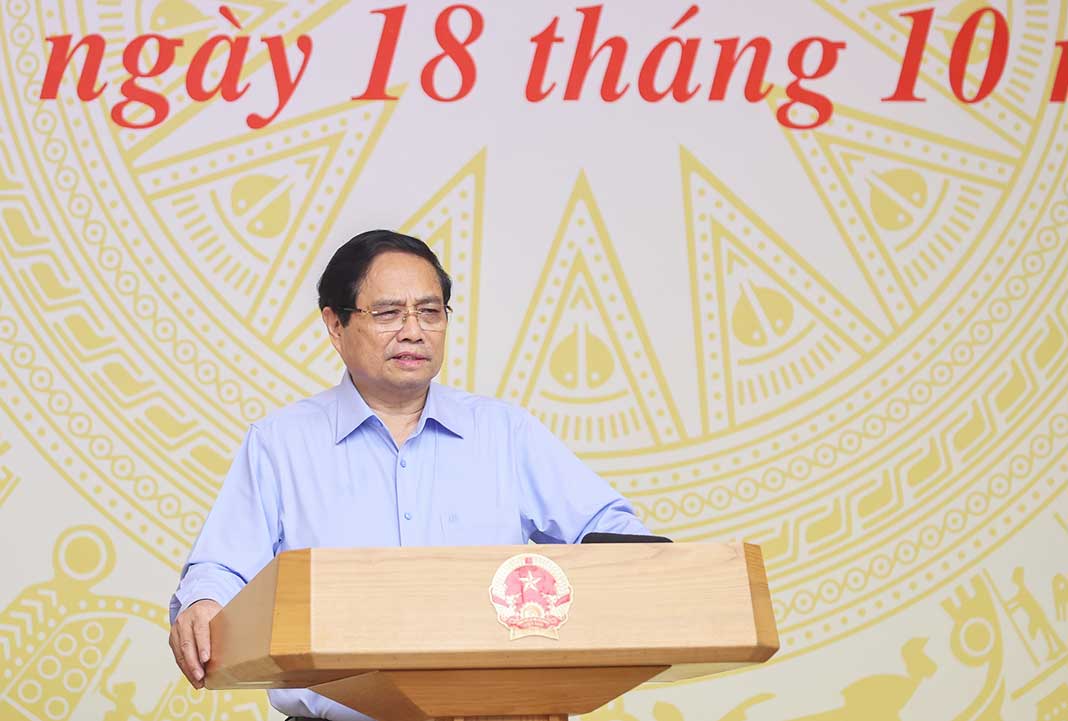HCMC – Results of public capital disbursement will be used as a key criterion for evaluating the performance of officials, Prime Minister Pham Minh Chinh has said.
Speaking at the fourth national conference on public investment disbursement in Hanoi on October 18, PM Chinh said that the disbursement of public investment capital is not only a responsibility under the authority assigned to officials but also a matter of conscience and public service ethics.
“Every completed project, every structure that rises, and every well-fulfilled task contributes to the nation’s development and strengthens public trust,” he said.
The prime minister requested that disbursement results be considered one of the key performance indicators for assessing the annual performance of organizations and individuals, in accordance with the Politburo’s Decision 366.
Those officials who show irresponsibility or commit violations must be strictly handled, while those who are slow or indifferent must be replaced, he stressed.
According to a Ministry of Finance report as of October 16 this year, nearly VND455 trillion had been disbursed nationwide, reaching 50.7% of the full-year plan. Nine ministries and central agencies, along with 16 localities, recorded high disbursement rates, helping drive growth and develop the nation’s socio-economic infrastructure.
Meanwhile, 29 ministries and central agencies, as well as 18 localities, had disbursement rates below the national average. The PM strongly criticized them, urging them to clarify collective and individual responsibilities, draw lessons, and take measures to speed up disbursement by year-end.
He blamed the slow progress on poor project preparation, inappropriate approval of investment policies and decisions, and unrealistic capital planning that required repeated adjustments. He noted that some agencies still avoided responsibility, feared making mistakes, and lacked effective coordination.
Other problems included delays in site clearance, compensation, and resettlement; poorly controlled supply and prices of construction materials, which led to investment costs rising; and shortcomings in bidding, inspection, and handling of violations. In some places, the management and use of public investment capital remained inadequate and untimely.
Several localities failed to take the initiative, were slow or lax in implementing the Government’s directions, and failed to communicate effectively to gain public consensus.
As for solutions, he urged strict implementation of relevant resolutions, directives, and telegrams, striving to achieve 100% of the disbursement plan. Ministries, agencies and localities will have to quickly allocate and categorize projects by progress level, set detailed disbursement schedules by week, month, and quarter, he noted.
They must also assign specific leaders to oversee each project or project group, he said, adding that funding from delayed projects must be transferred to those with better disbursement capacity, in line with the principle that “every unused dong must be transferred to where it can be spent effectively.”
The Ministry of Finance, in coordination with other ministries, sectors, and localities, was assigned to propose adjustments to the 2025 capital plan, reallocating funds from areas with slow or no disbursement to those with faster progress, and report to the competent authorities before October 25.









